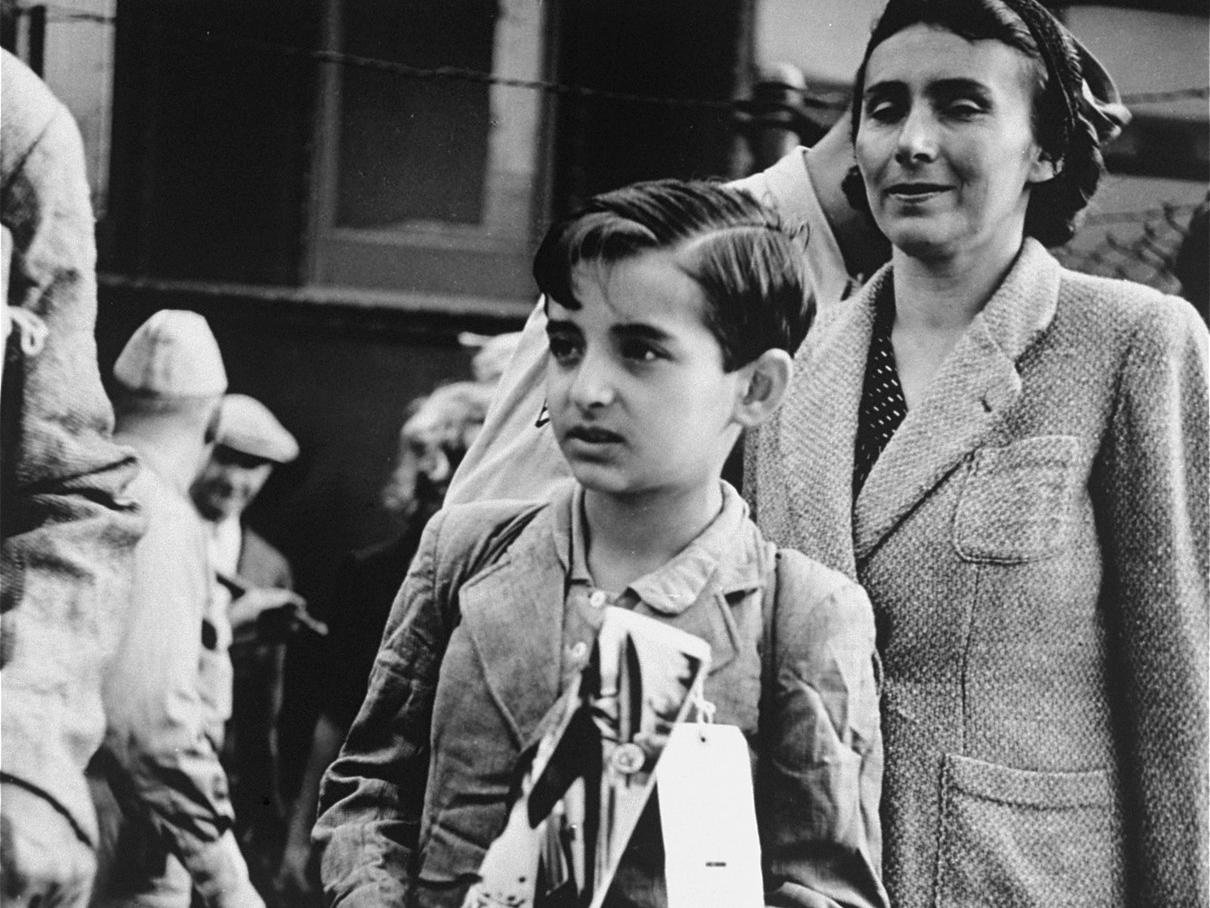The operetta “The Golden Cage” -- performed at SUNY Oswego on Nov. 12 and 13 by the Oswego Opera Theatre -- was written by and tells the story of refugees fleeing World War II and arriving at a one-of-a-kind shelter in the Port City. (Public domain image courtesy of the United States Holocaust Memorial Museum)
The operetta “The Golden Cage” –- first staged in 1945 at a one-of-a-kind refugee shelter and only recently rediscovered –- will showcase Oswego’s singular historic role when the Oswego Opera Theater stages it at 7:30 p.m. on Nov. 12 and 3 p.m. on Nov. 13 in SUNY Oswego’s Waterman Theater.
“The Golden Cage” was originally written by refugees at Fort Ontario in Oswego. The hand-written manuscript was lost for years, but was recovered recently.
The nephew of Charles Abeles, the composer of “The Golden Cage,” found the original manuscript locked in a trunk. He sent it over to Marilynn Smiley, who is the president of the board of the Oswego Opera Theater and a SUNY Oswego emerita professor of music. She had spent time with another one of Abeles’ nephews when he came to visit the museum in Oswego.
“A couple of years later I got a manila envelope, and in it was the score of ‘The Golden Cage,’” Smiley said.
When SUNY Oswego music professor Juan La Manna, artistic director for Oswego Opera Theatre, received the original manuscript, he found sections missing which he had to piece together to create the full piece.
“I had to do a little detective work, and in the cases of the sections where there was a melody and no words, try to fit what I saw in the libretto,” La Manna said. “There were sections that were missing all together.”
LaManna will direct the performance along with Benjamin Spierman of the Bronx Opera Company.
Compelling story
“The Golden Cage” tells the story of nearly 1,000 refugees –- most of them Jewish -- who came to Fort Ontario fleeing Europe during World War Ⅱ. Opening in 1944, the center in Oswego was the only place in the United States that welcomed them.
“They’re at the shelter and their physical needs are met, but they don’t know what their future is,” Smiley said. “They have everything but their freedom.”
They were welcomed to Oswego with the condition that they will return to their home country at the end of the war. They made Oswego their home for two years. Today, the Safe Haven Museum in Oswego tells and preserves this compelling story.
“The opera was first performed on Christmas of 1945,” La Manna said. “At the time, the refugees still didn’t know whether they could stay here in the states, and so the opera ended quite sadly.”
Eventually, President Harry S. Truman allowed these refugees to become legal immigrants in the United States. The composer of “The Golden Cage” then wrote a new finale to the operetta to provide the refugees with hope. However, they did not leave a written edition of the new score, which meant it was lost to history.
Smiley said the composer could have possibly written down the full piece of “The Golden Cage,” but all his music was stolen when he went to New York City before leaving the country.
“I had to come up with something, which I did by using previous themes that he had used in other parts, and adapting the words that were in the libretto to use those sections,” La Manna said.
“The Golden Cage” was intended as a review opera when it was originally written. This means there is no absolute storyline and the songs don’t drive a direct narrative, said La Manna.
“The unifying line is that they are all talking about their previous life in Europe and the horrors they had seen, and the excitement and anticipation about the trip,” La Manna said. “And then their life here in Fort Ontario, which they all appreciated, but it was upsetting in a way because they found themselves behind a fence again, hence the name ‘The Golden Cage.’”
The orchestra will have five musicians playing violin, bass, piano, trumpet and clarinet. The cast will include 13 children ages seven to 16, eight members of the community playing refugees and three established lead parts –- in roles designated as such in the manuscript –- played by "very accomplished opera singers from New York City," La Manna said.
“I think what’s going to make this production extremely special is the fact that we are going to use contemporary, of the time, videos as a backdrop,” La Manna said. “We are bringing in a very accomplished video designer who is going to do projections throughout the opera.”
LaManna expects the production of “The Golden Cage” to be very powerful and moving, both recounting the horrors these refugees went through, while also giving a message of hope.
Tickets for this event are $10 for students, $25 for senior citizens and $30 for the general public, available via SUNY Oswego’s ticket website, tickets.oswego.edu.
Those unable to attend can watch a filmed version of the operetta on demand; visit oswegogoldencage.bpt.me for details.
-- Written by Gabrielle Kroeger of the Class of 2023




